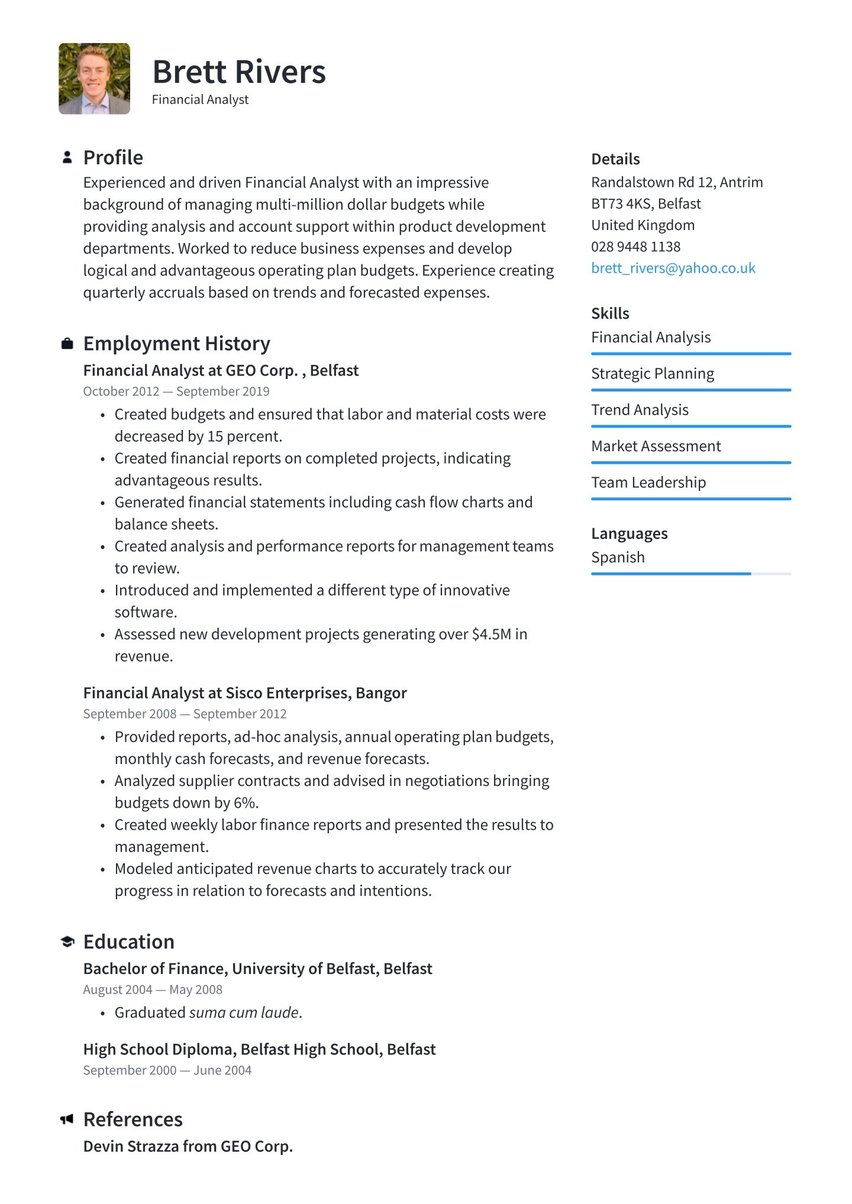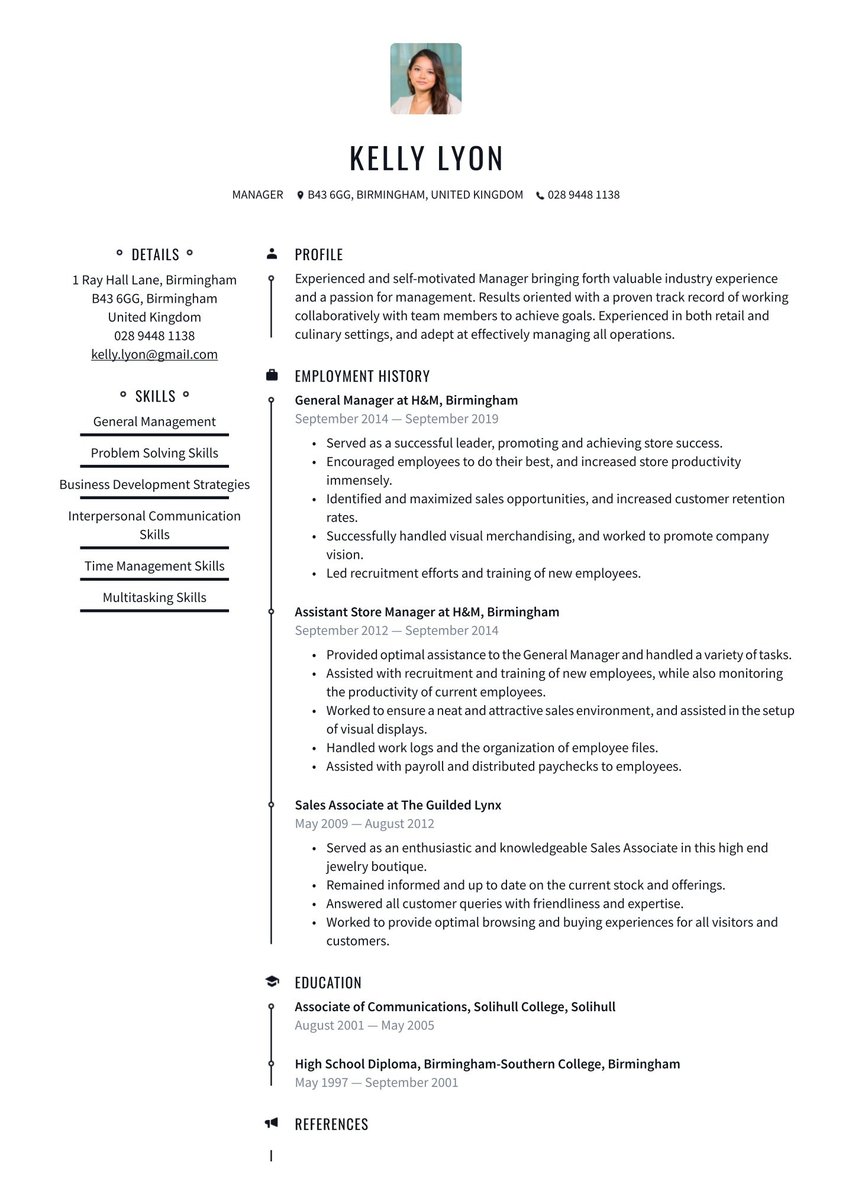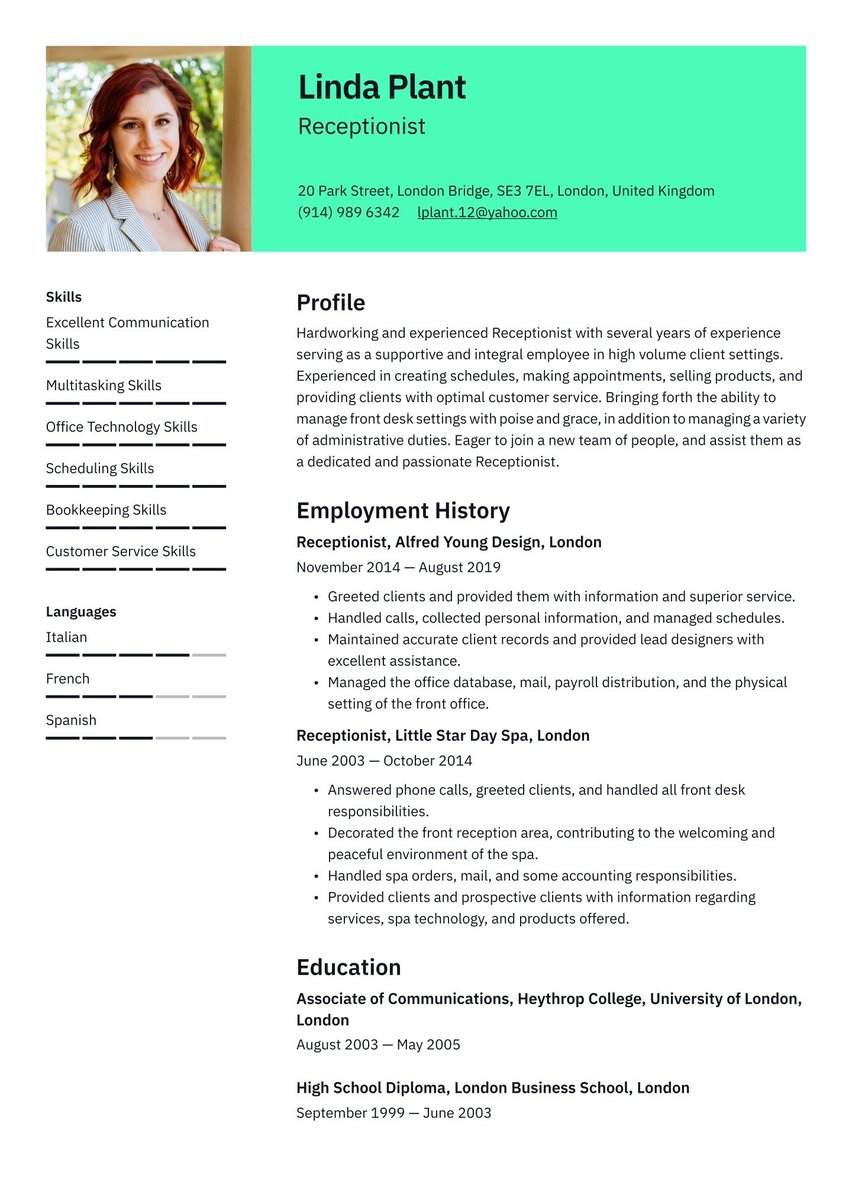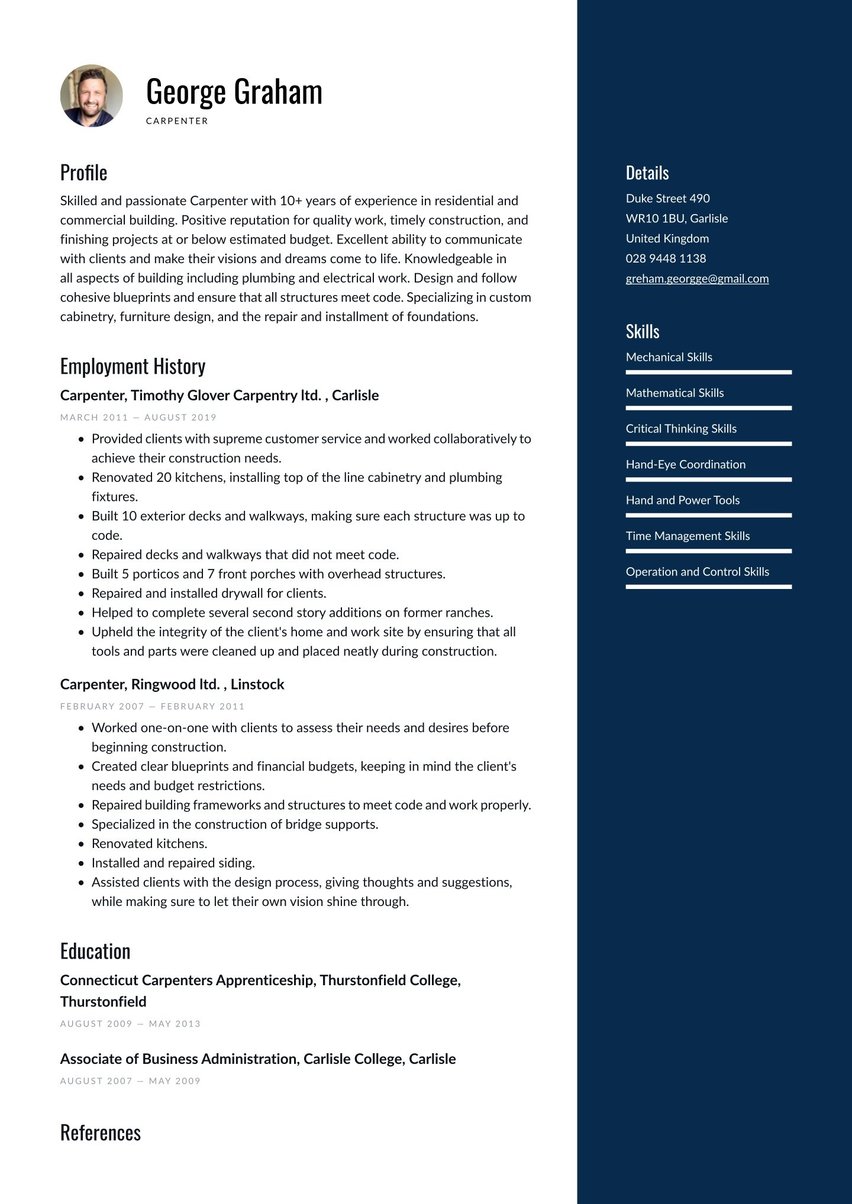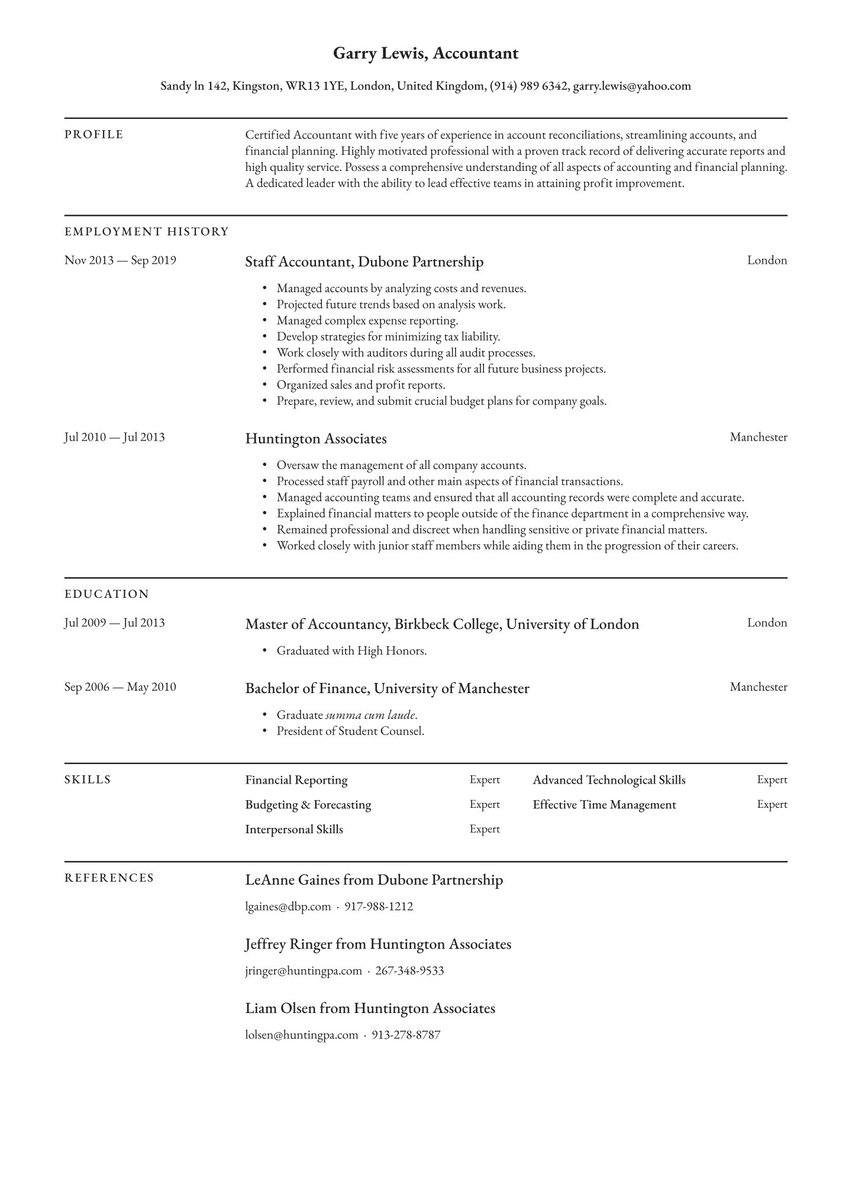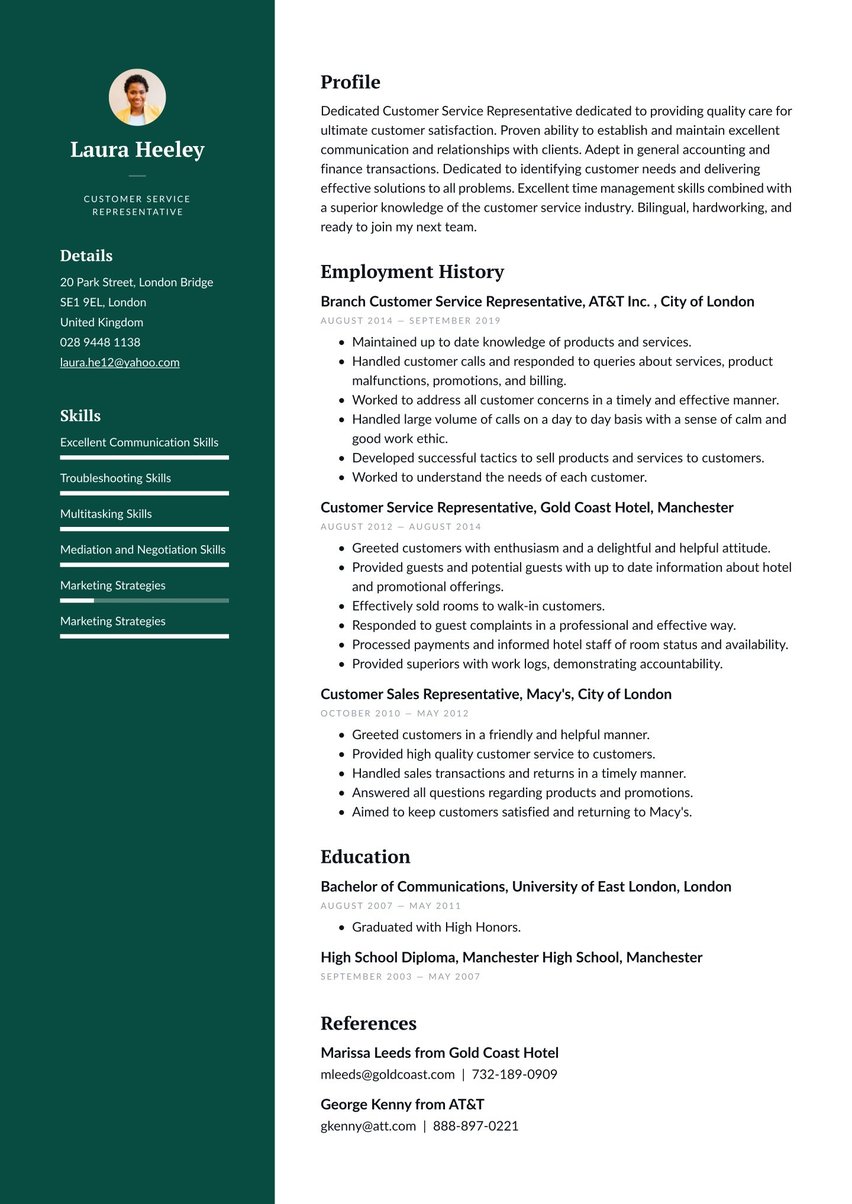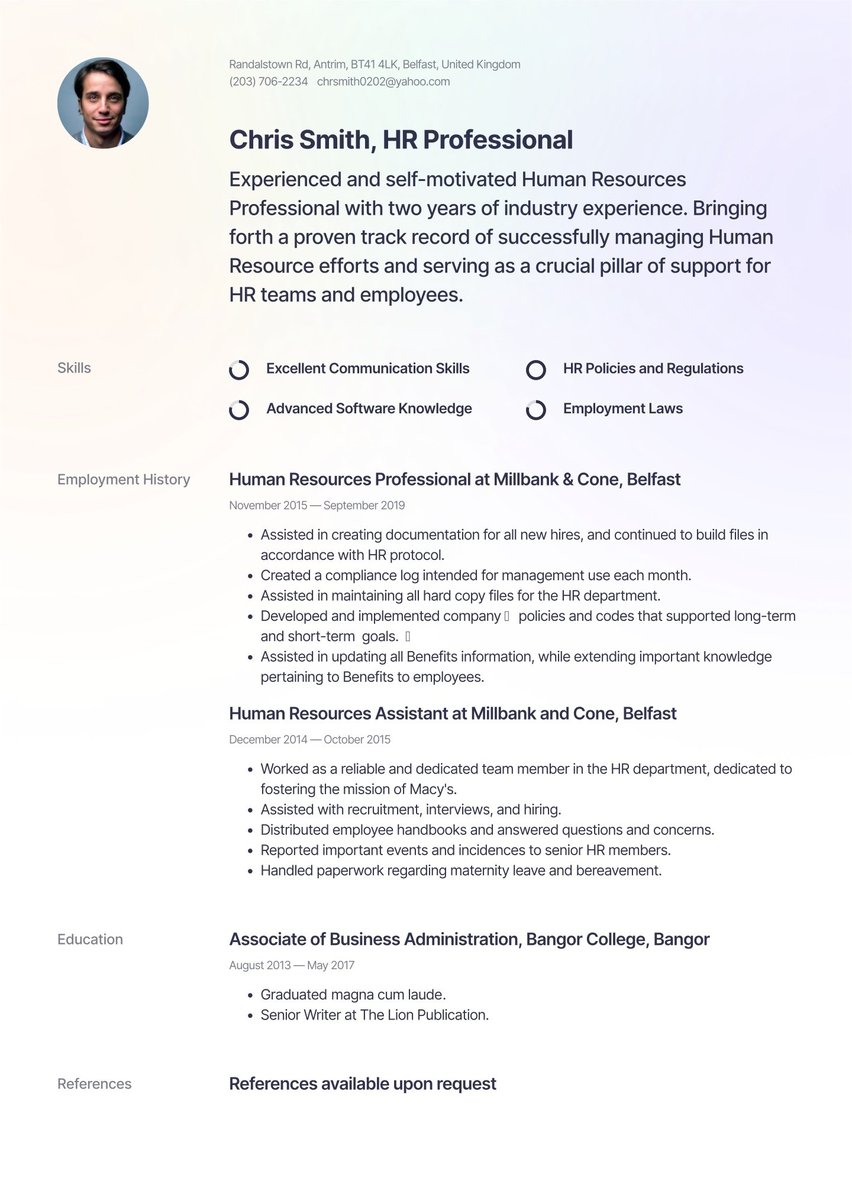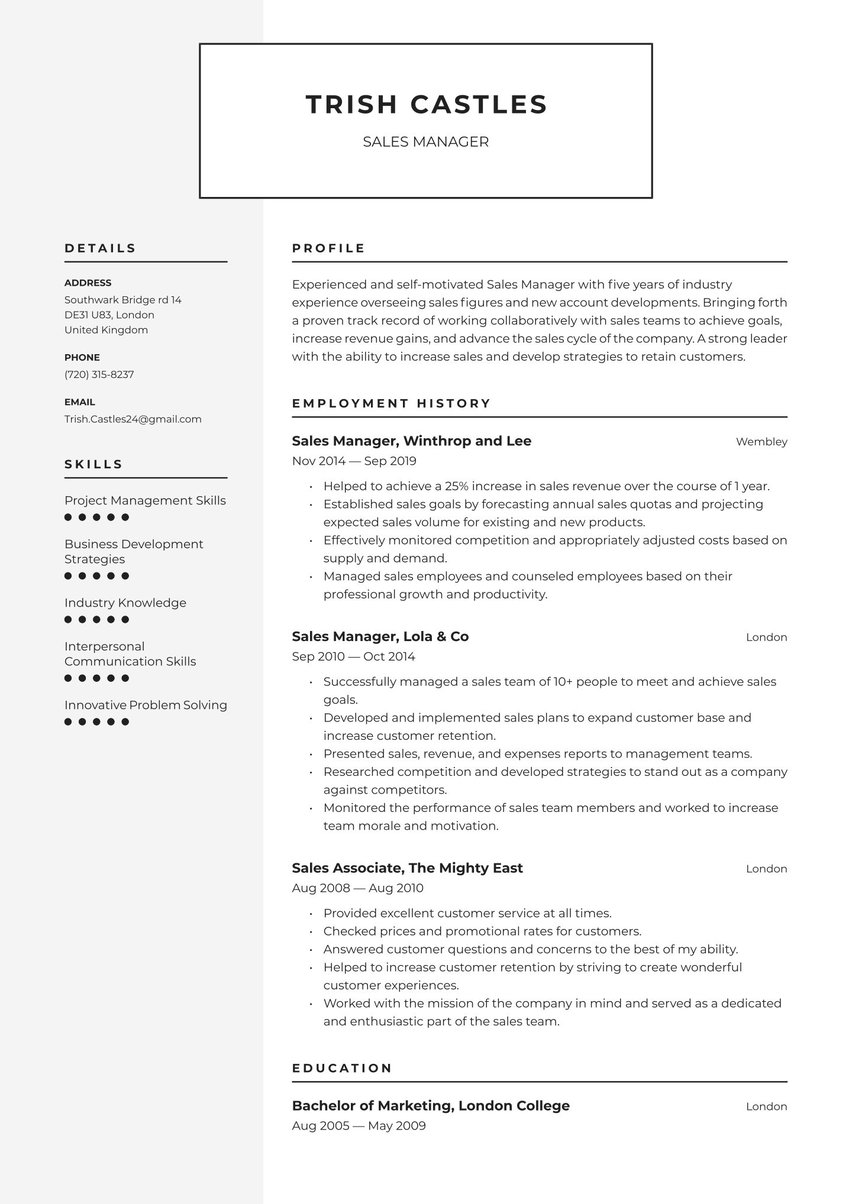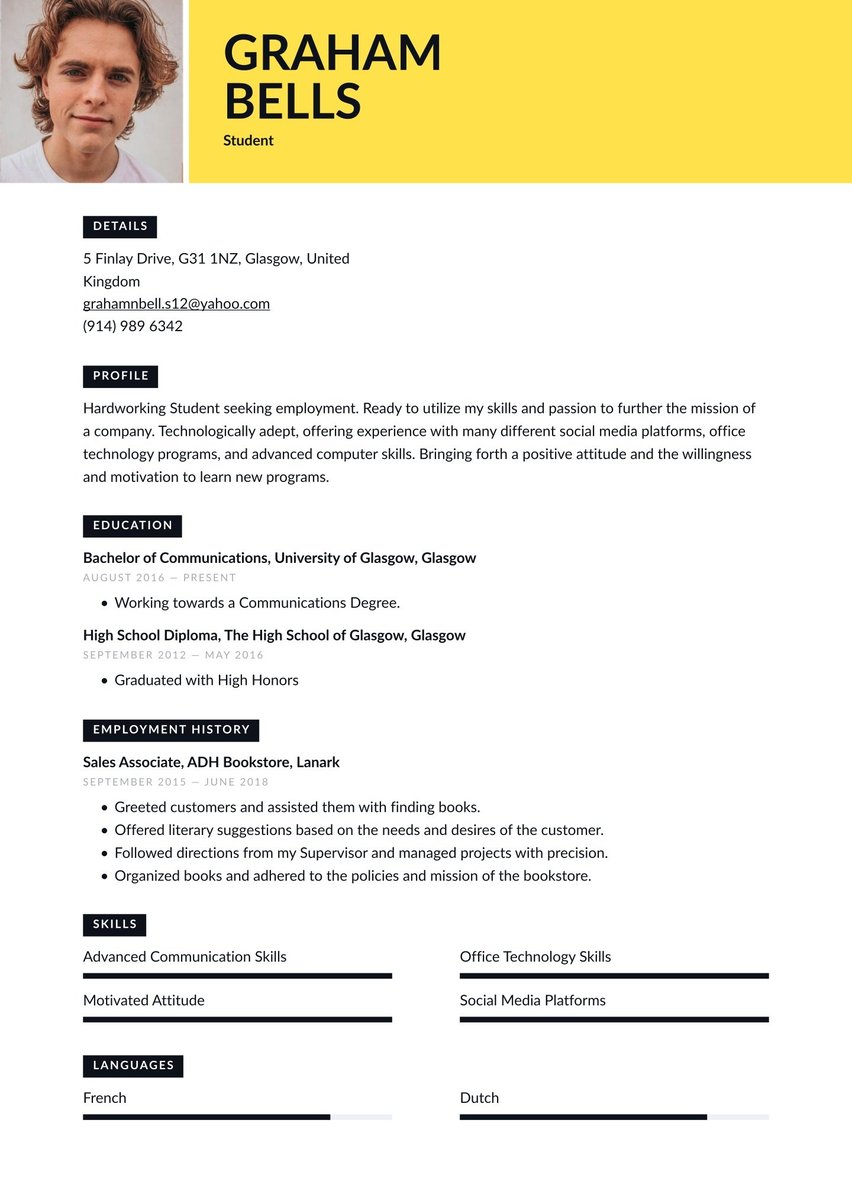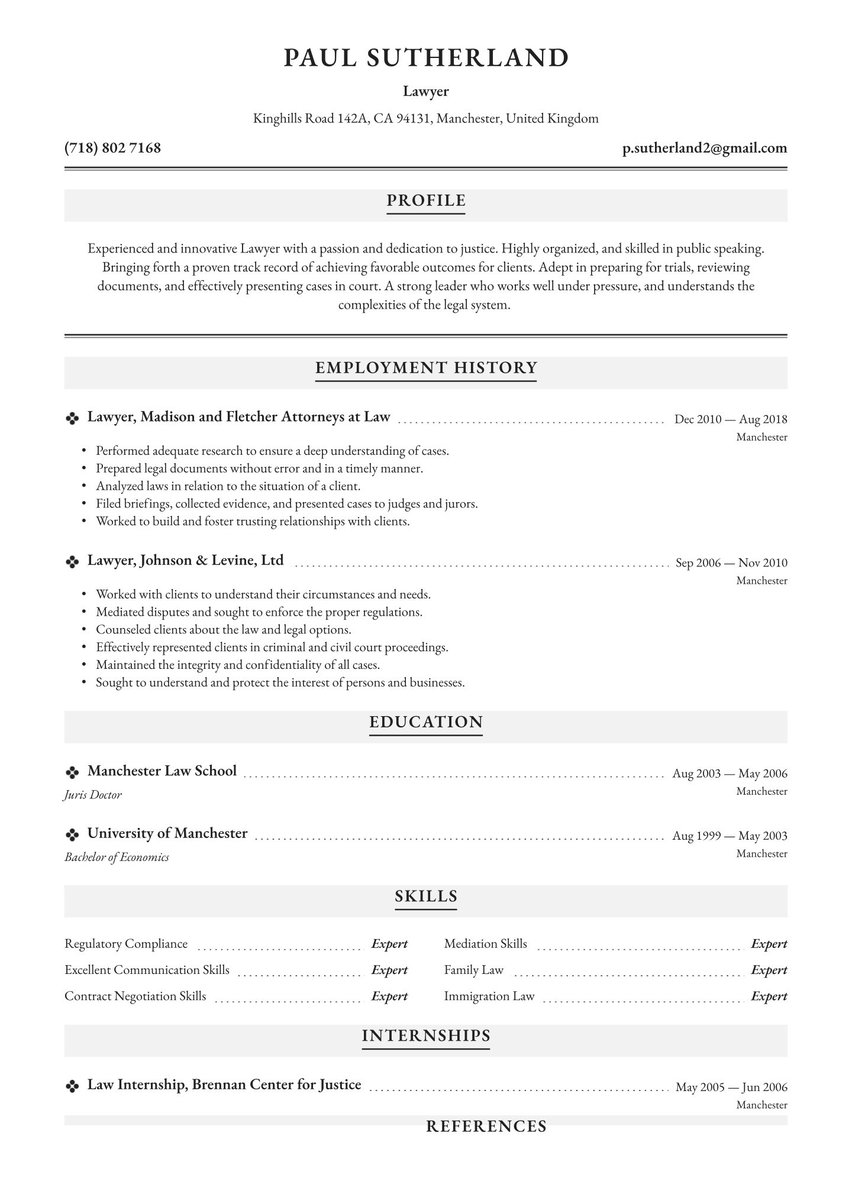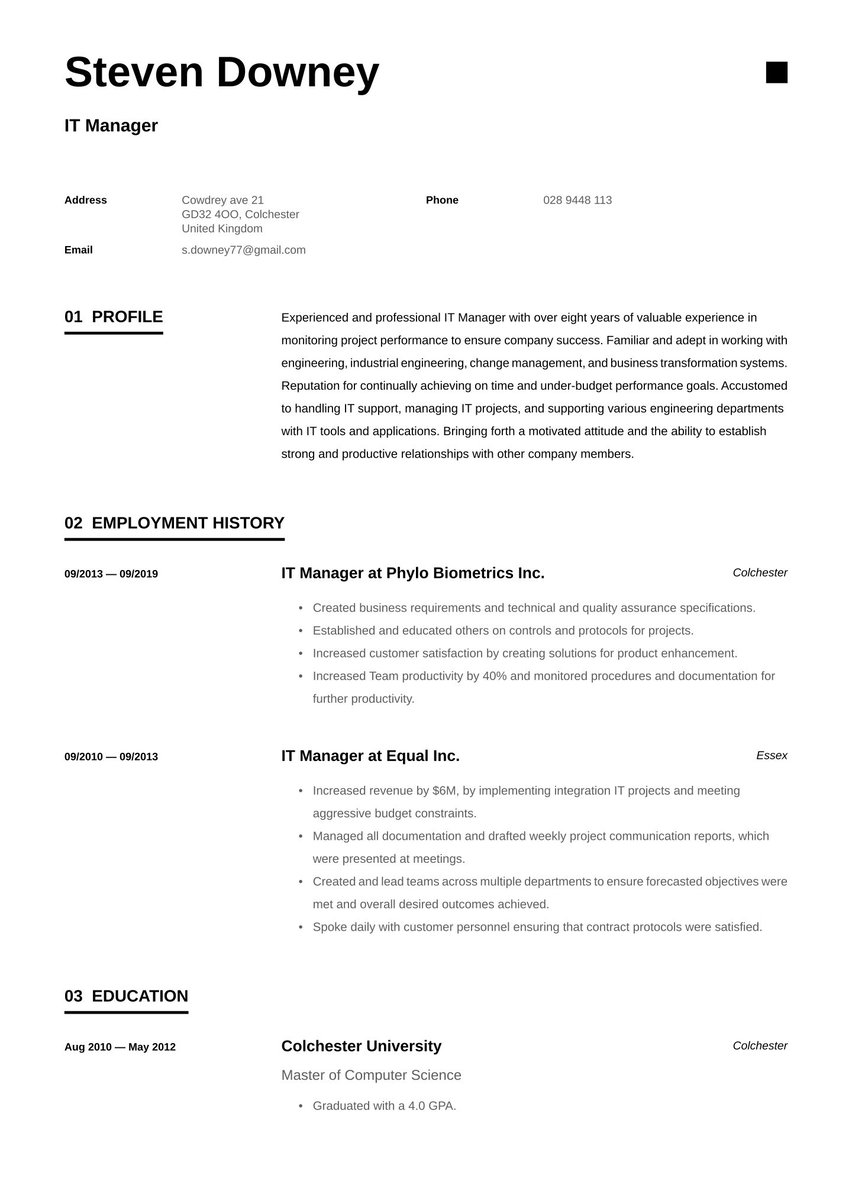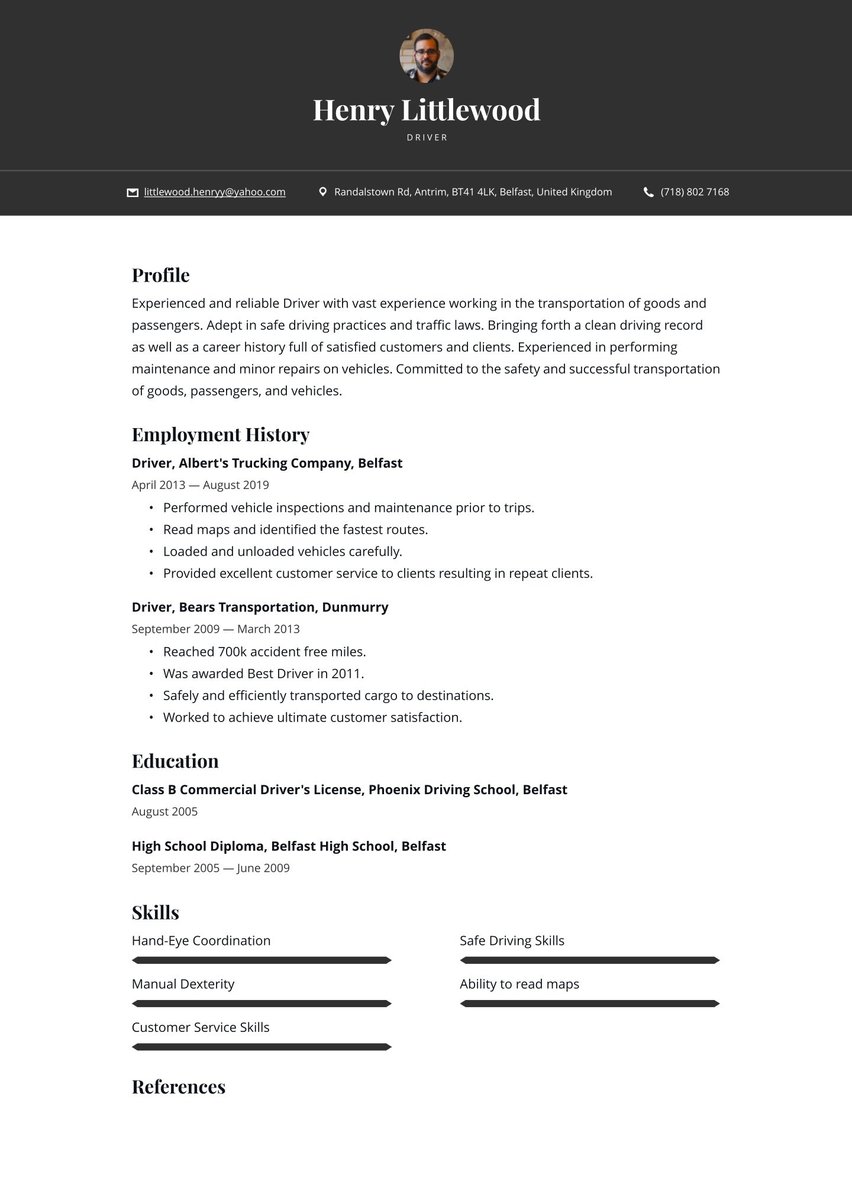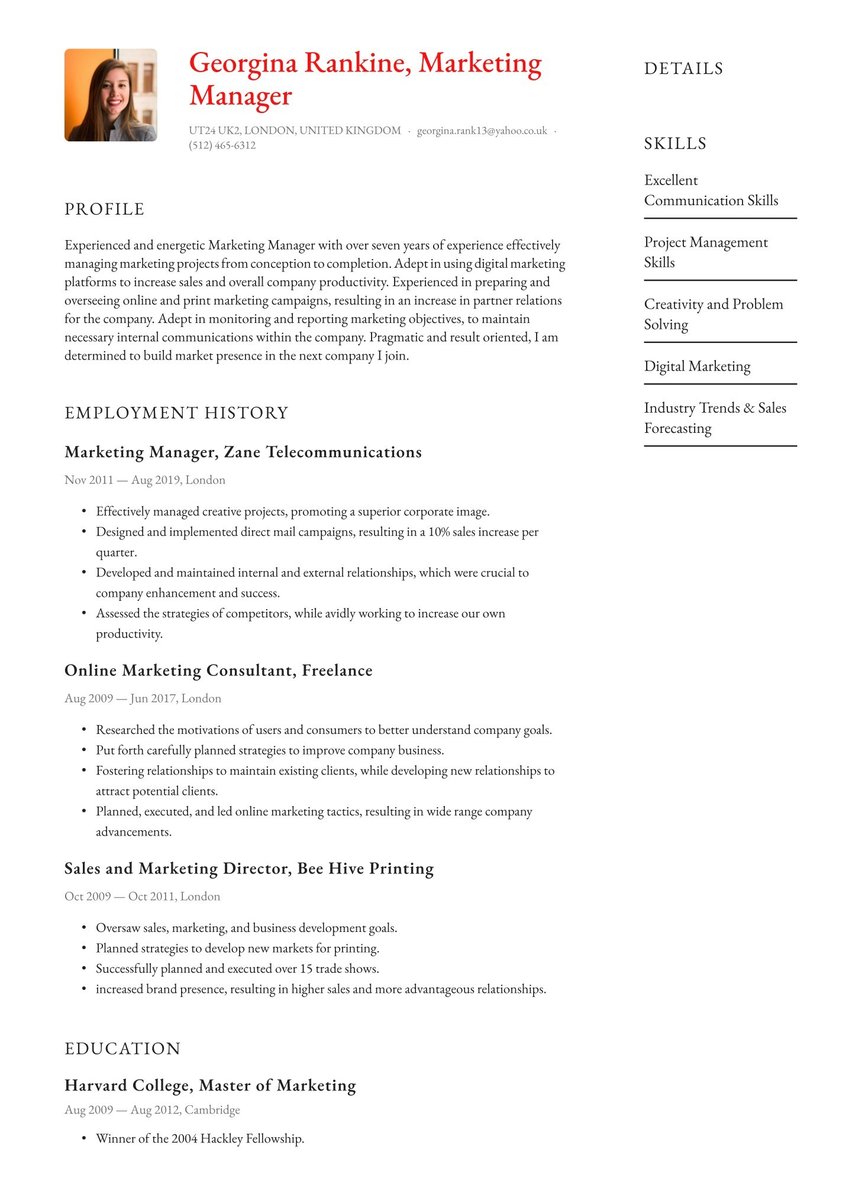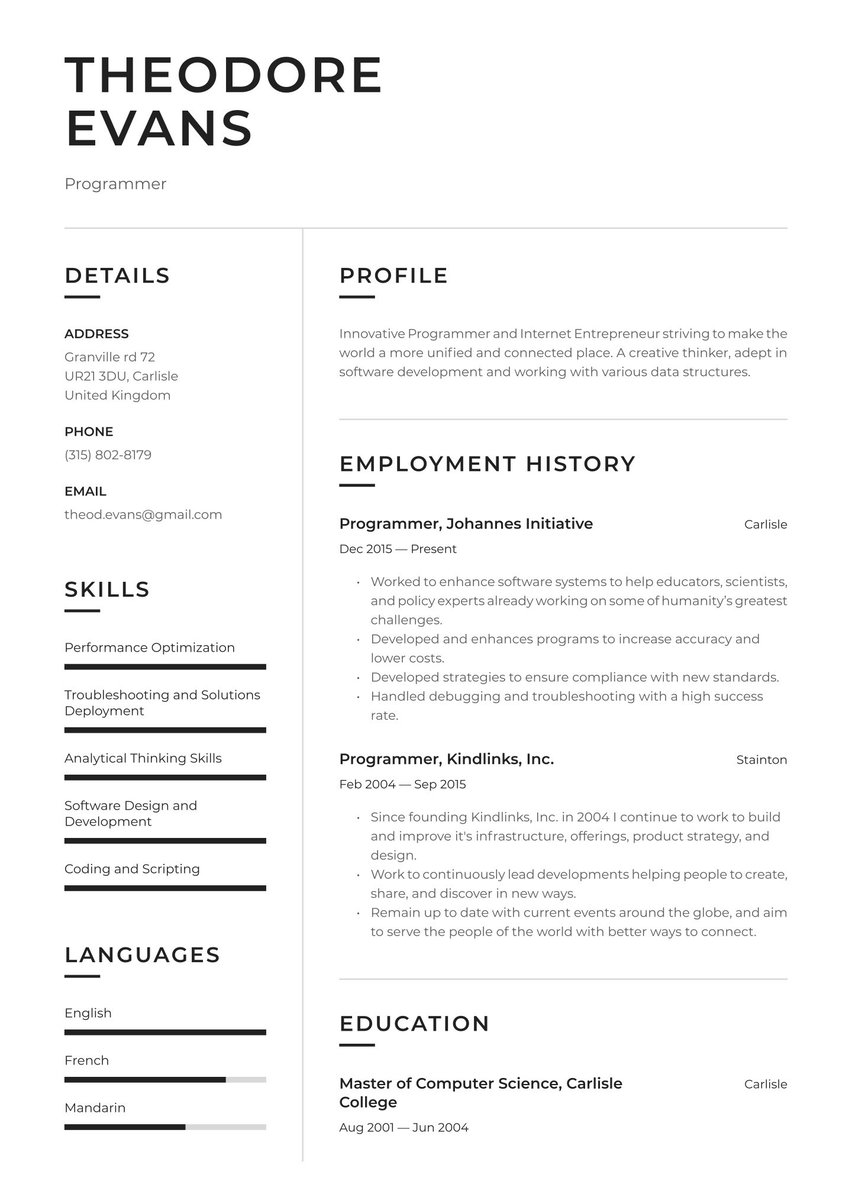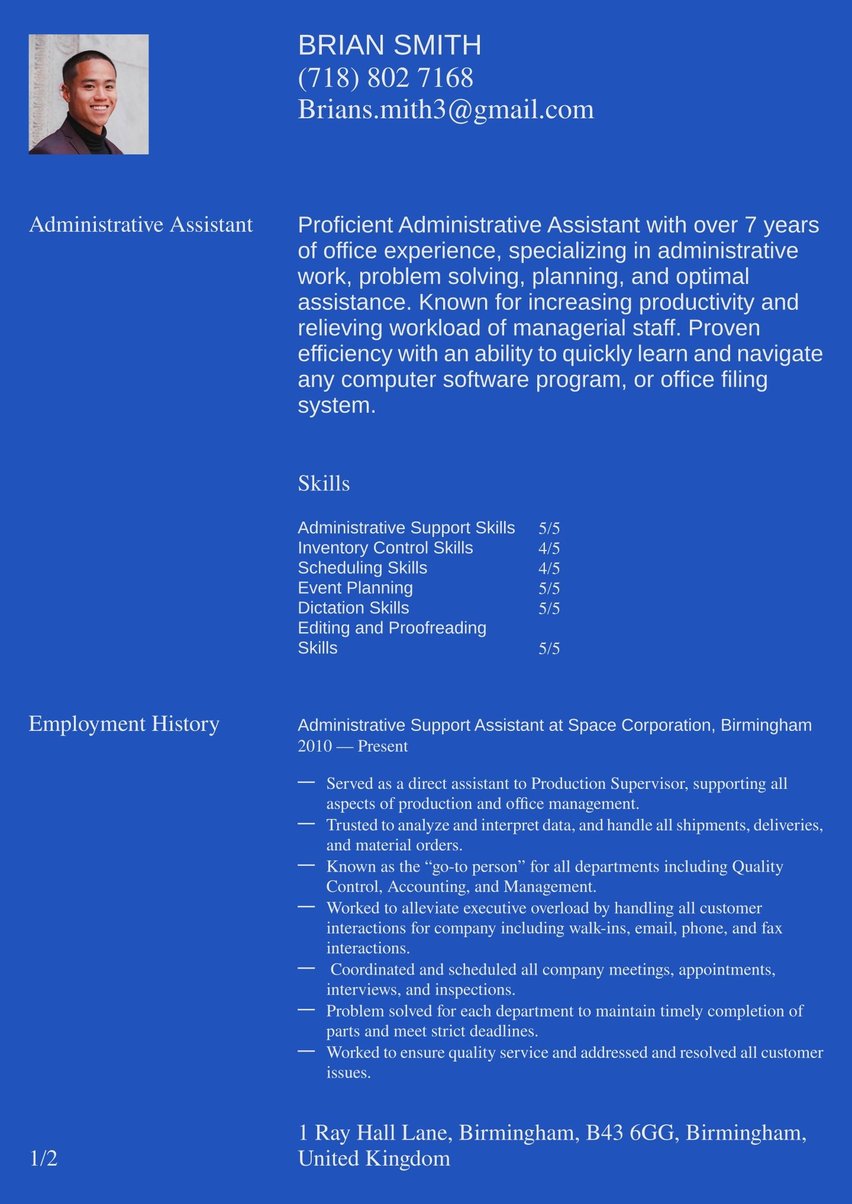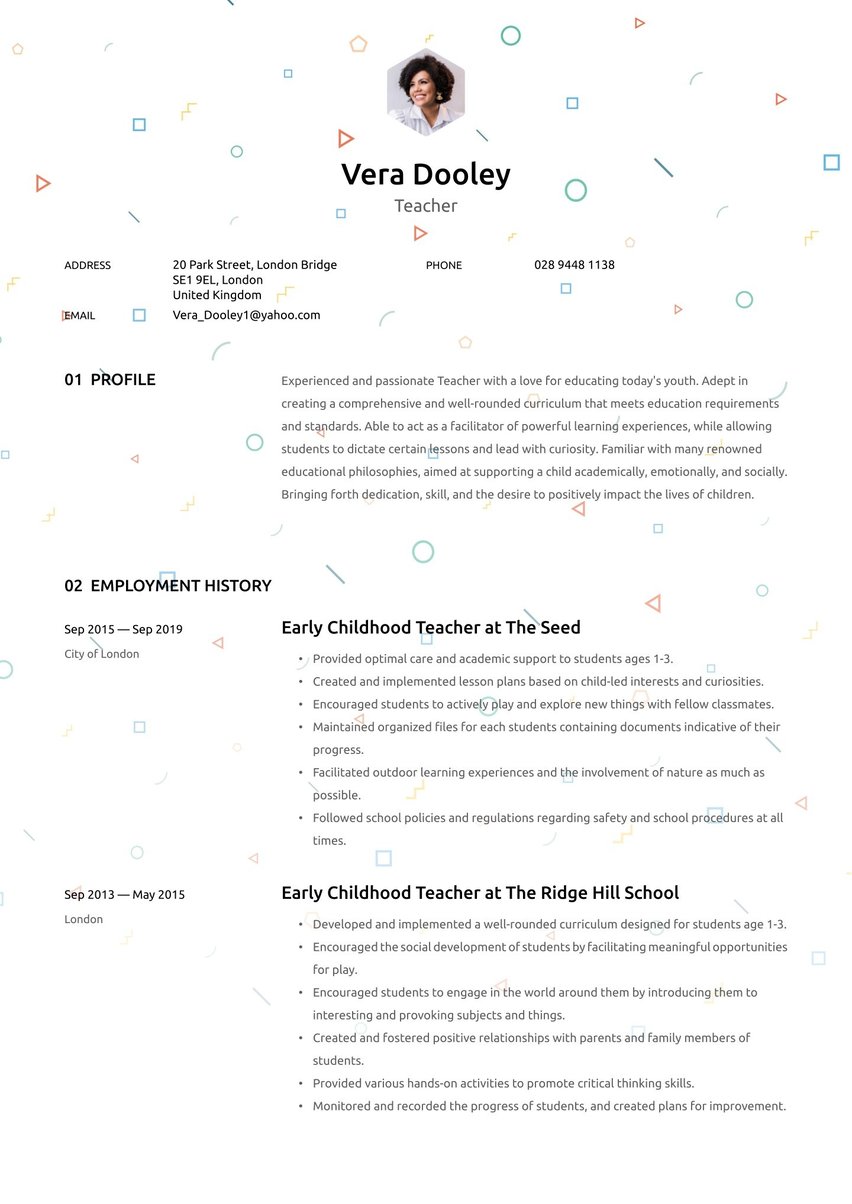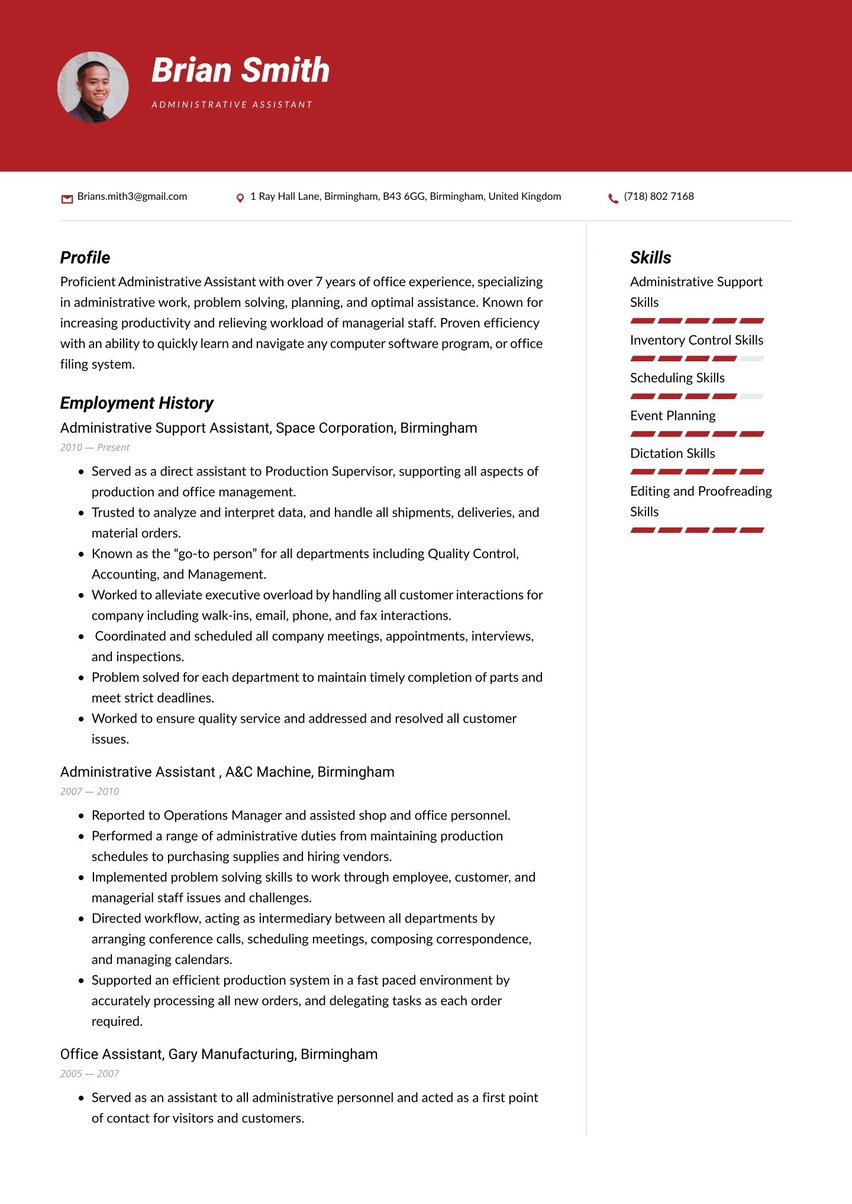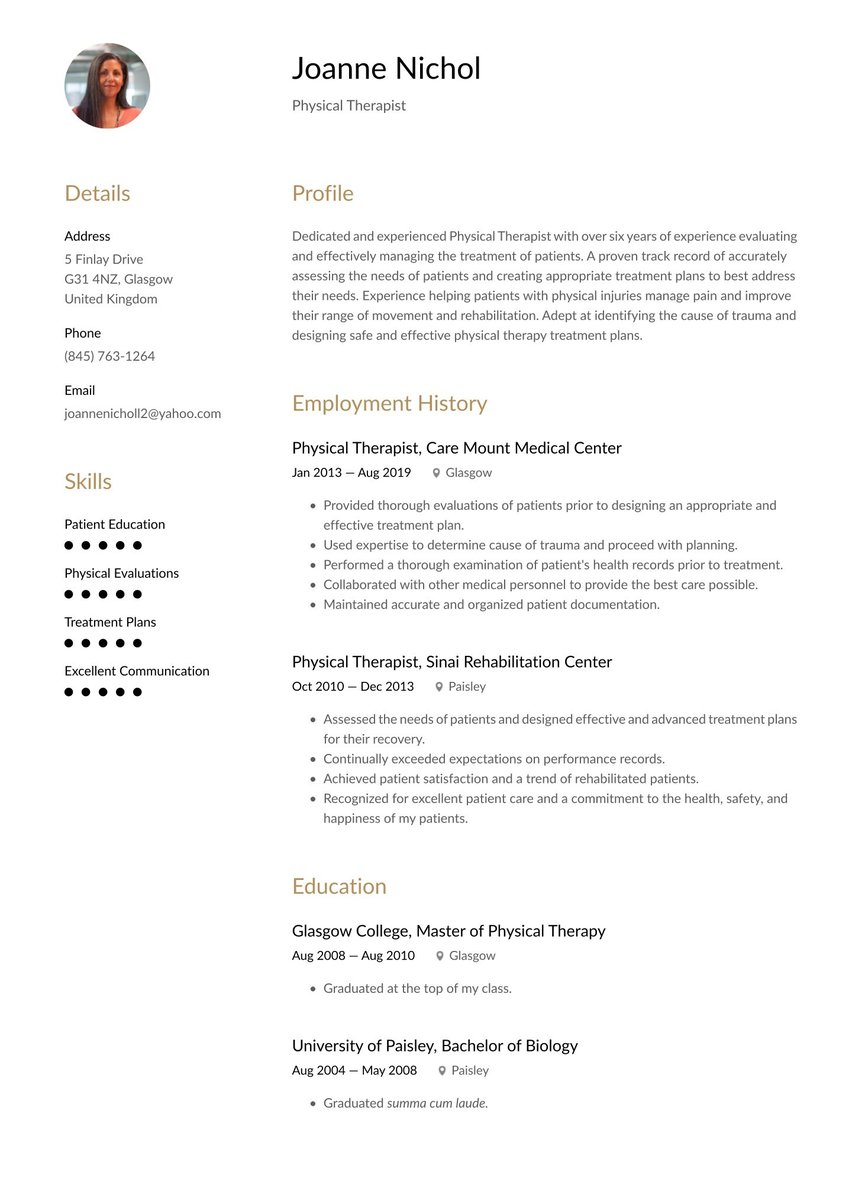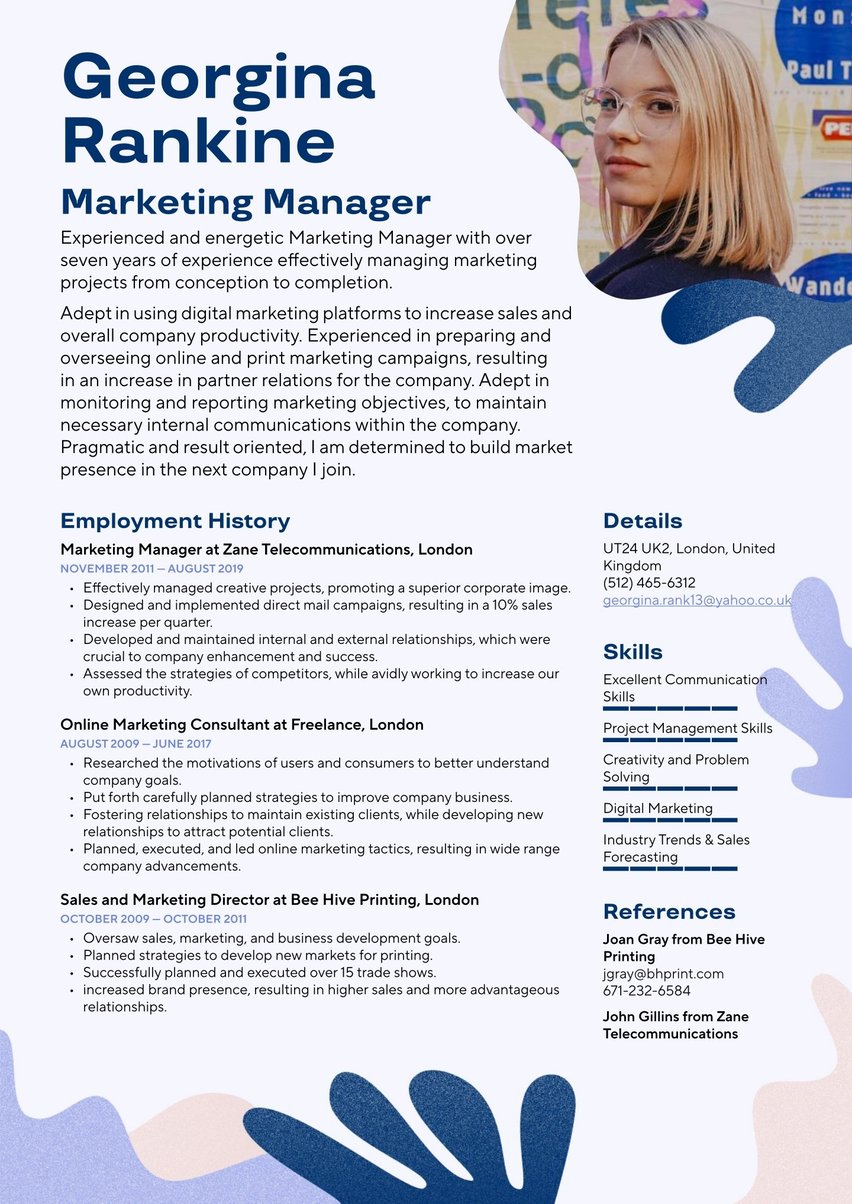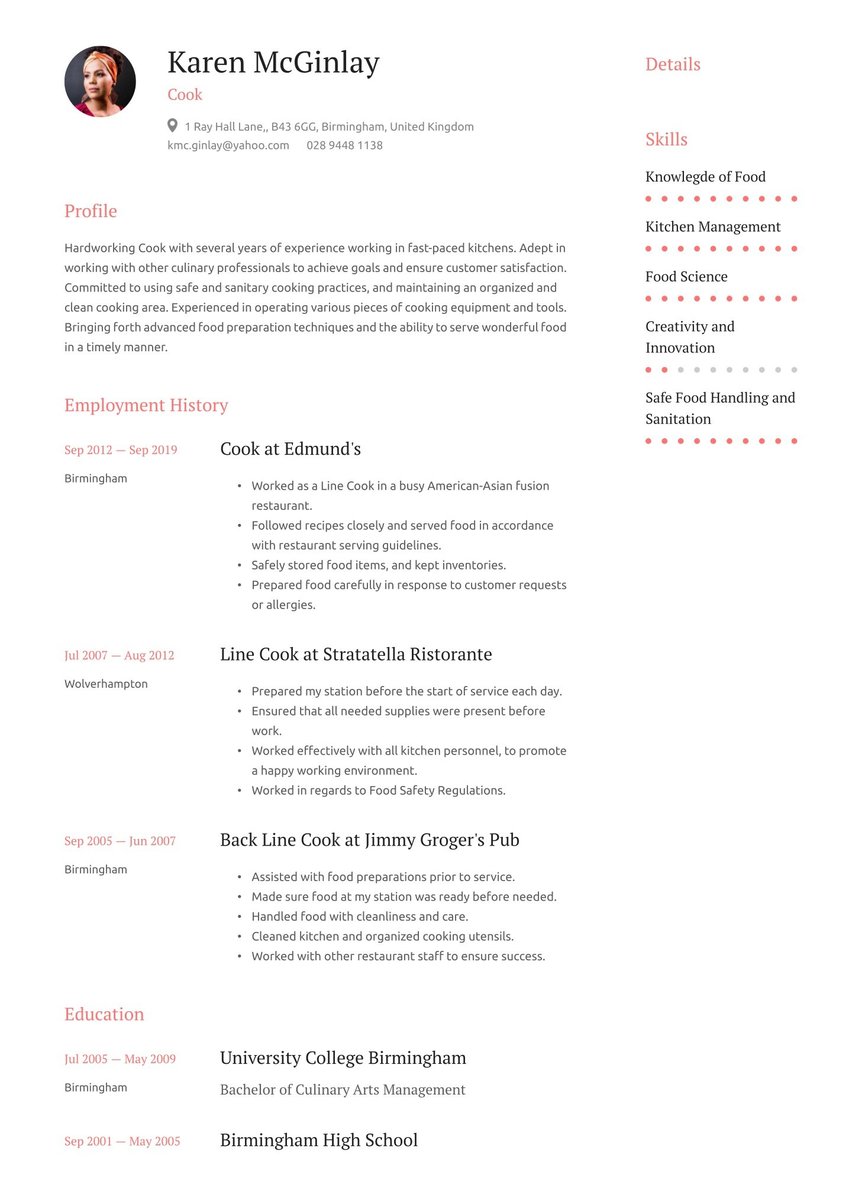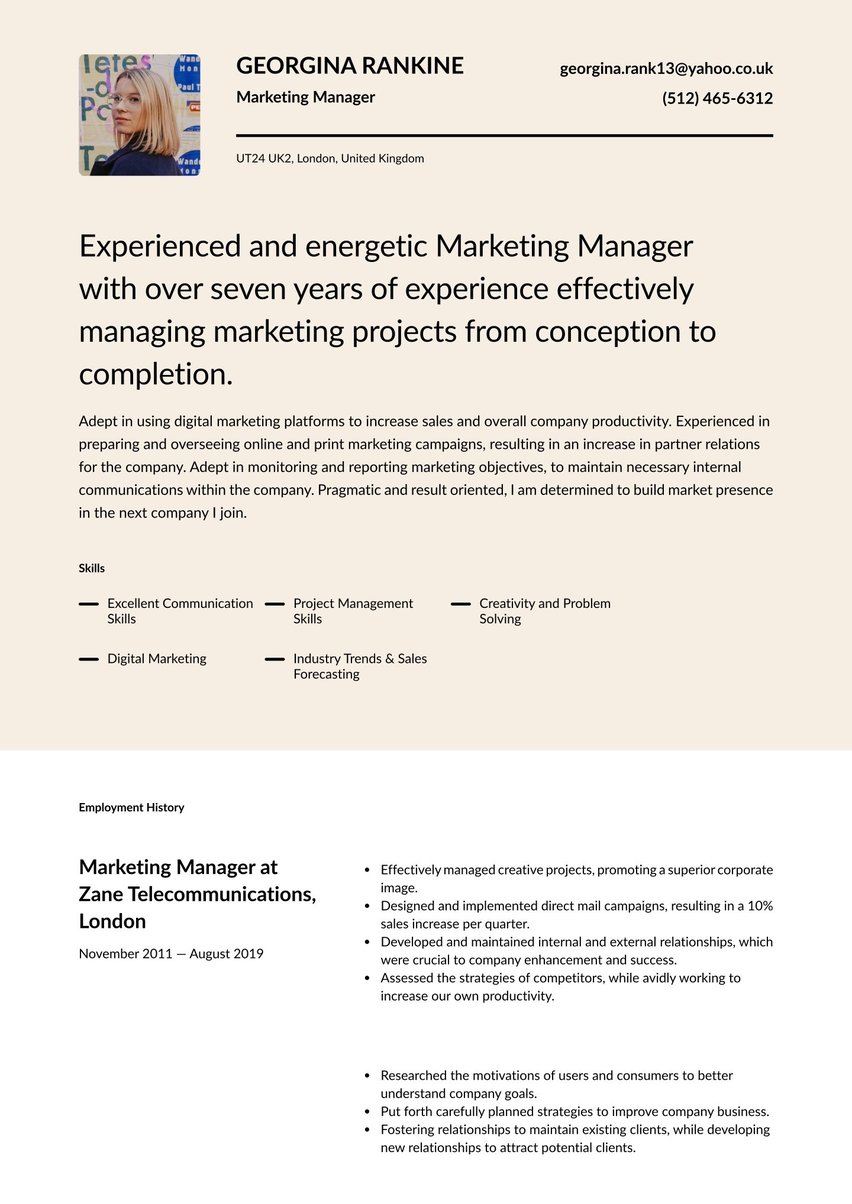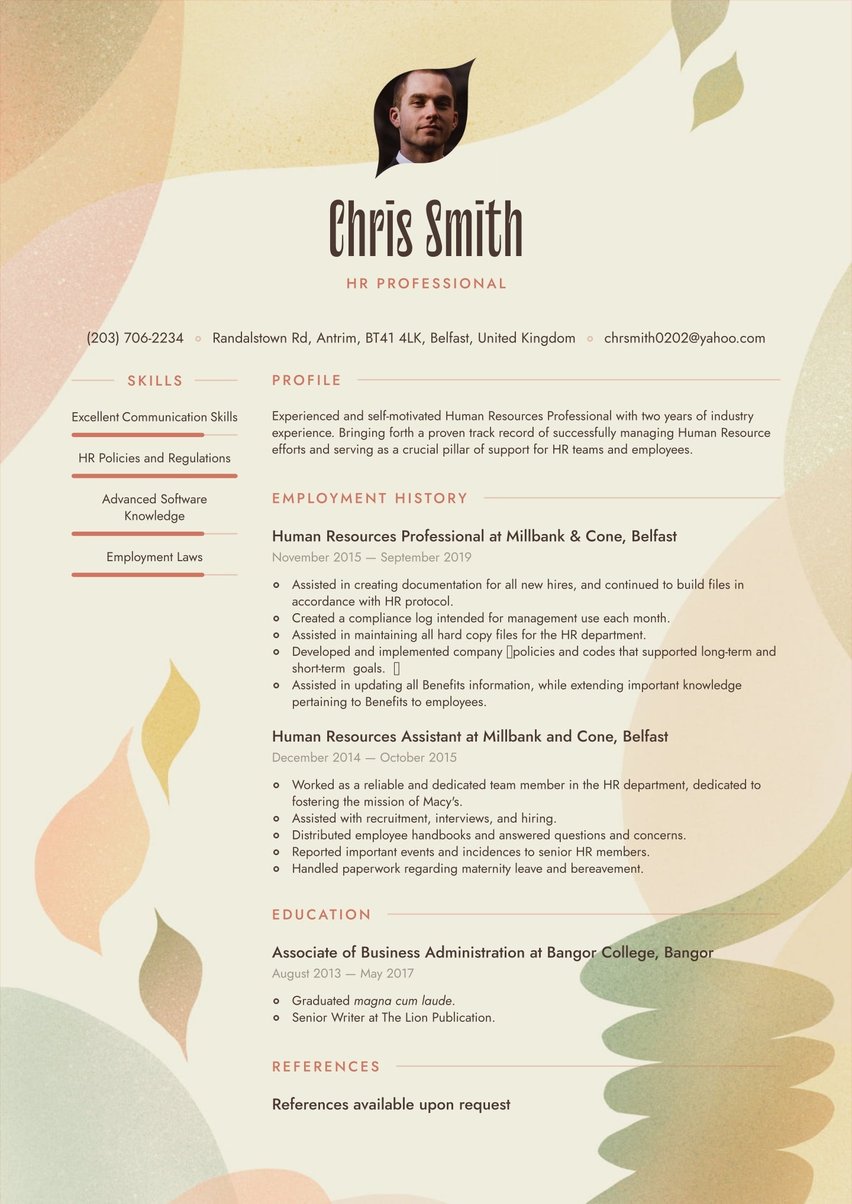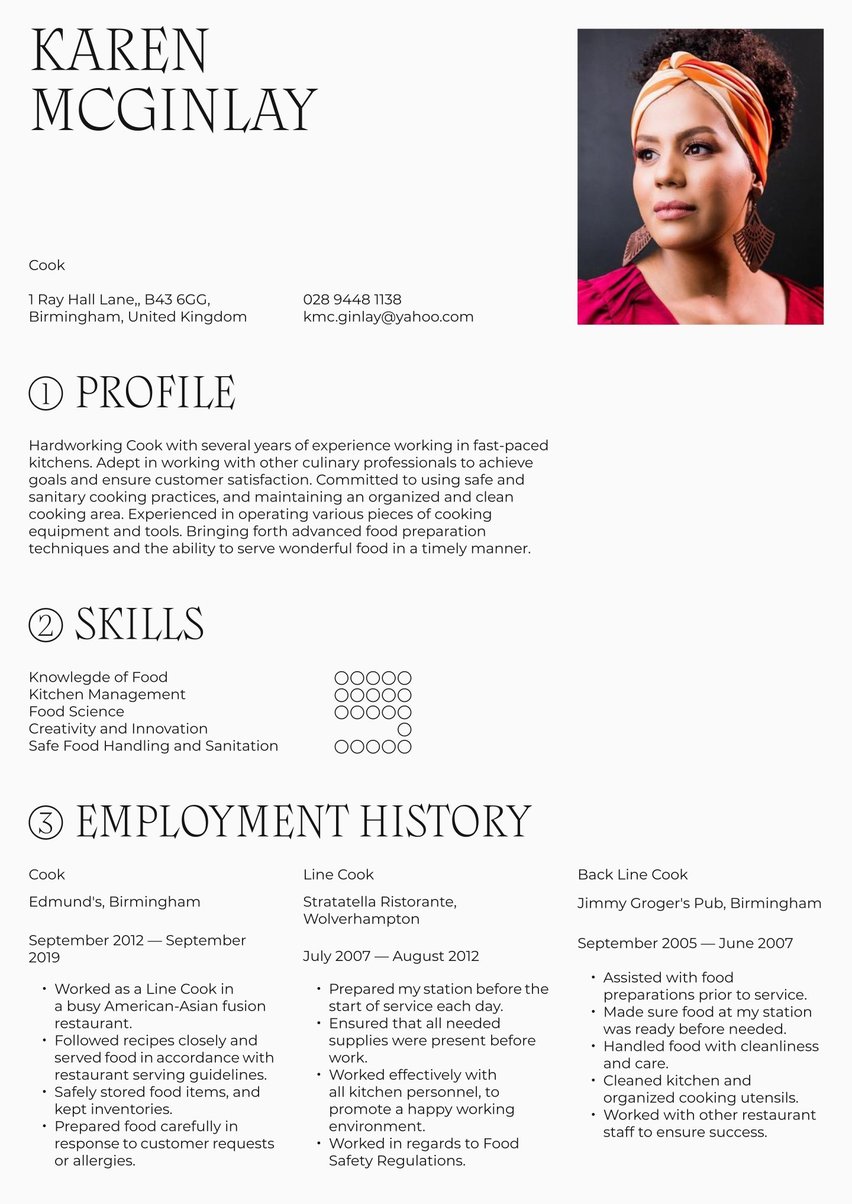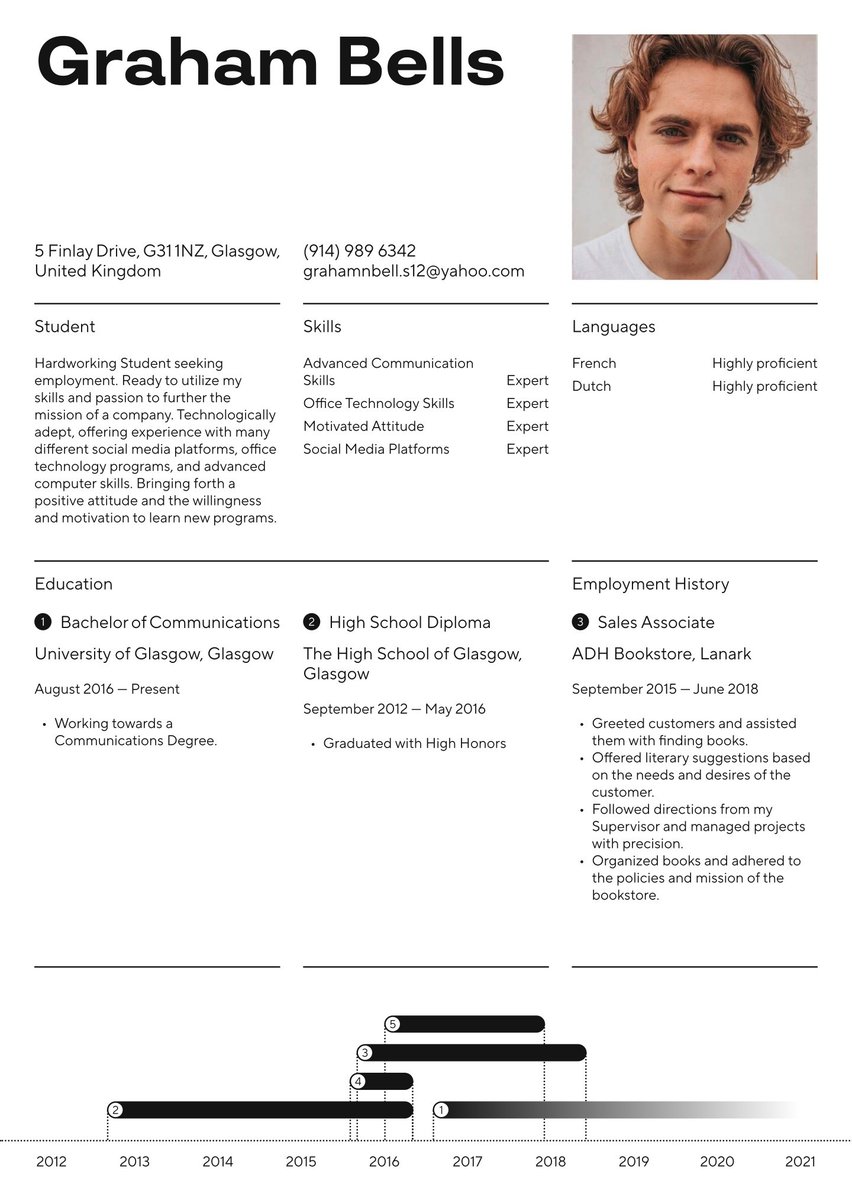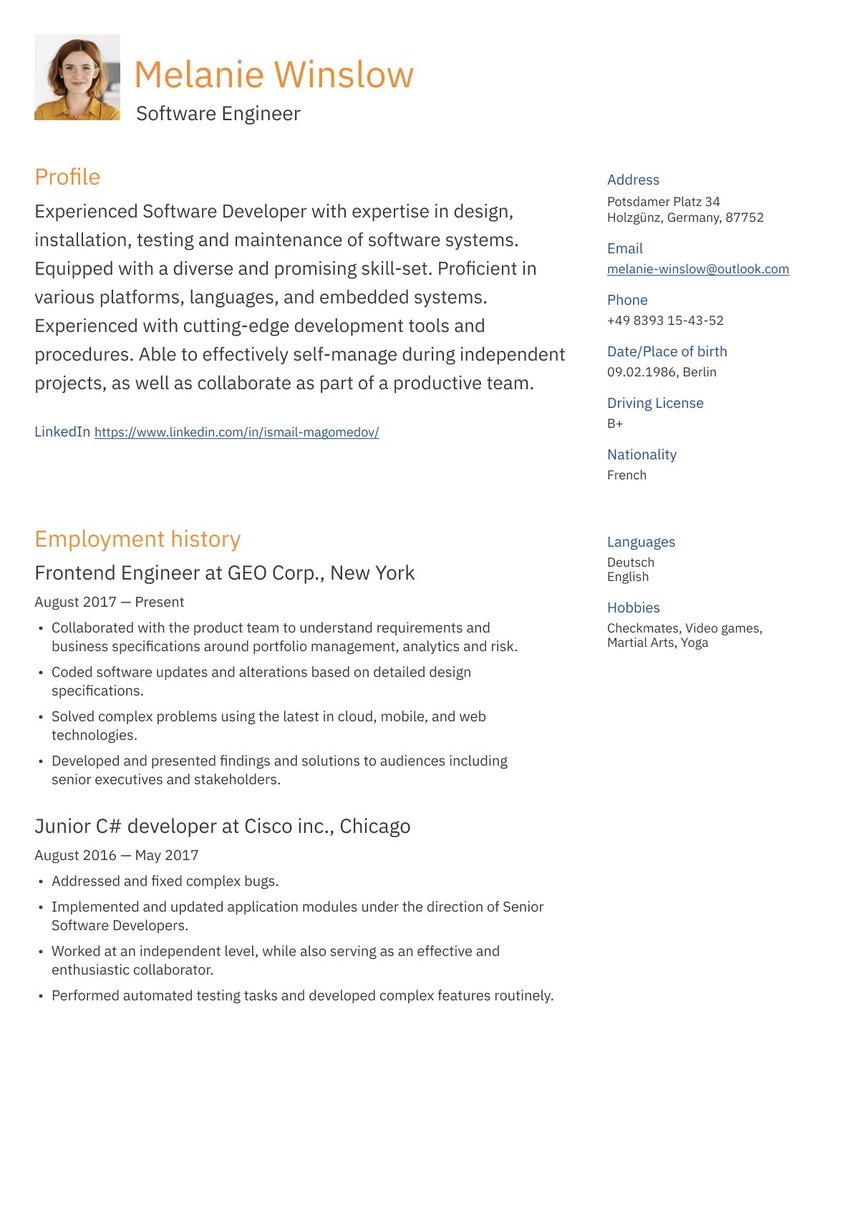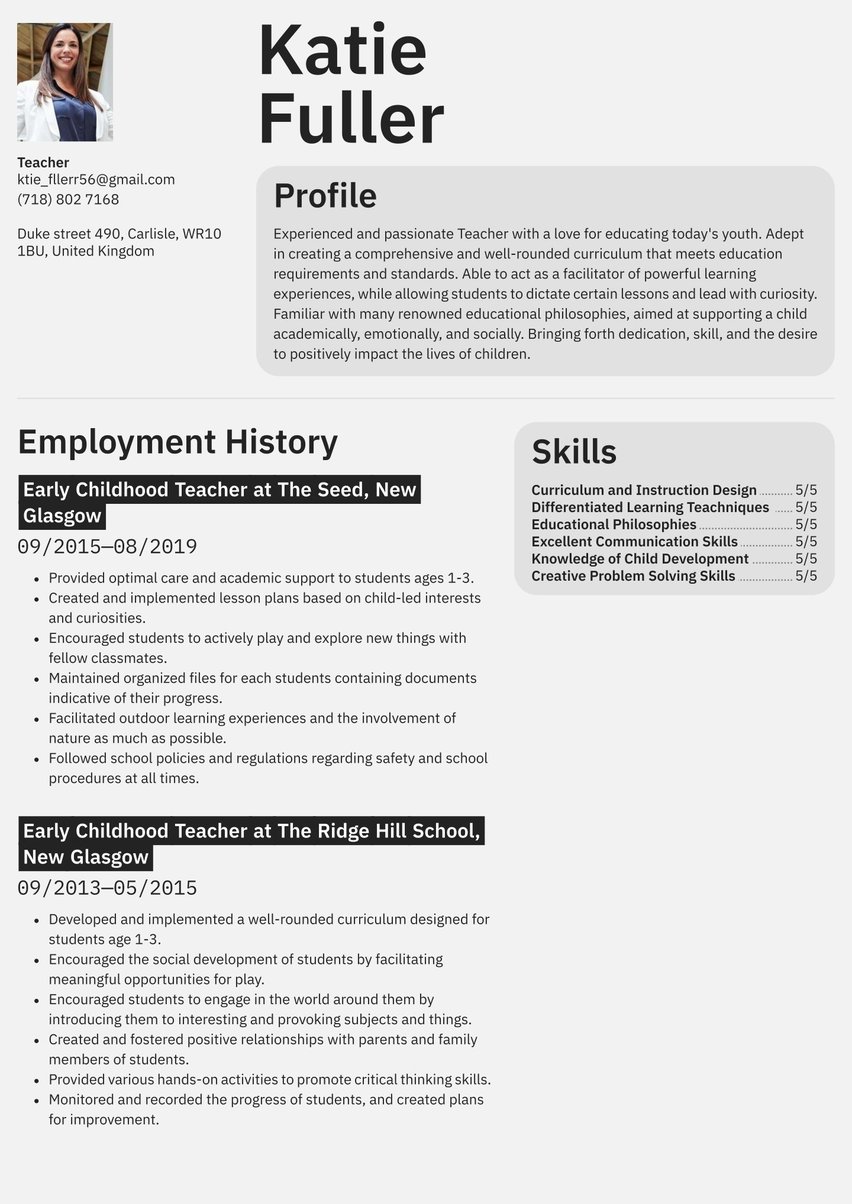Registered Nurse with valid NMC Registration. Experienced in private hospital and hospice settings to patients with varying needs. Compassionate and self-motivated with a proven track record of delivering outstanding one-to-one care.
02/2020 - 06/2022, Registered Nurse, Delvaney Health Group, York
- Delivered the highest standard of care to all 750+ hospital patients.
- Conducted thorough physical exams and recorded detailed health care histories.
- Implemented appropriate programs and care plans for patients.
- Actively contributed to a culture of exceptional compassion through creation of out-patient peer support network.
- Created and shared treatment plans with colleagues, patients and families.
- Liaised with health and social care professionals to ensure a comprehensive approach to patient care.
- Remained up-to-date with advances in health care options, medications, and treatment plans.
06/2016 - 12/2019, Night Nurse, Ellington Healthcare, York
- Maintained high standards of care by performing accurate assessments and implementing care plans.
- Ensured that all tasks were completed during period of duty and that residents received required care before shift hand-over.
- Effectively handled all nursing tasks including but not limited to distribution of medication, dressings, tube feeding, and management of medical conditions.
- Assisted with the mentoring of new staff members.
- Provided medical advice to patients and families with appropriate guidance from on-call doctor.
09/2015 - 05/2016, Master of Science in Nursing, Brunel University, London
09/2012 - 05/2015, Bachelor of Science in Biology, The University of Sunderland, Sunderland, UK
- English
- Chinese
- Patient Care and Treatment Planning
- Emergency and Critical Care
- EHR Proficiency
- Intravenous Therapy
- Patient/Family Education
- Compassionate Communication with Colleagues and Patients
Writing the perfect nurse CV doesn’t have to be hard. As a frontline healthcare worker, you have the expertise and experience to save lives. You’re one of the nation's superheroes.
Whether you're applying for an NHS role or want to work in a private practice, it’s simply about putting all of the above onto paper and turning the hiring manager’s head.
You don’t need to be told that nursing is a challenging position. Long shifts and a hectic workload can be hard to handle. However, when you’re making a real difference to the lives of ordinary people, it’s all worthwhile. It takes a hard-working and caring individual to excel in this role. If you have what it takes, it’s time to show off your skills on your CV.
CV guide for a nurse CV
Here at Resume.io, we have powerful resources to help job seekers just like you.
We’ve got CV guides and CV examples for leading professions, backed up by an easy-to-use CV builder.
Within this CV guide (and the corresponding nurse CV example), we will go over the following topics:
- How to write a nurse CV
- Choosing the right CV format for nursing
- How to add your contact information
- Using summaries
- Adding your nursing experience
- Listing education and relevant experience
- Picking the right CV design/layout
- What the nursing market looks like, and what salary you can expect
The importance of a well-written CV!
If you are applying for NHS positions, most of the time you will have to fill out application forms. However, you shouldn't overlook your nursing CV.
Some institutes and hospitals may require you to send your CV along with a cover letter. Make sure that yours is up to date so that you are always ready.
How to write a nurse CV
Are you itching to get started? Before you begin writing your nurse CV, you need to know what elements to include. Don’t worry. We’ve got you covered here. You can take a look at our CV example for inspiration. However, your document should feature:
- CV header
- CV summary (aka profile or personal statement)
- Employment history section
- CV skills section
- Education section
Next, you need to understand the style, tone, and approach needed for a nurse CV. As a general rule, this type of application should be formal. Nursing is a highly-respected career and — while you will generally have to communicate with both patients and staff — your CV will likely be read by a medical professional.
Avoid using jargon, wherever possible. While there may be terms that everyone in the medical profession is familiar with, you don’t want to bamboozle the reader. Opt for simplified phrasing and don’t use acronyms when there’s room for the full titles.
You should also tailor your CV to the job at hand. Nursing is an umbrella term. You might be going for a role in a busy hospital environment or working in a walk-in clinic. The responsibilities of each role will be different from one another. Pick out only the skills and expertise that are appropriate for the type of nursing position you want to get.
Optimise for the ATS
Applicant Tracking Systems (ATS) are types of software that employers use when hiring new candidates. The program sifts through CVs and ranks them according to which are best suited to the role. The system used keywords to determine which is the right fit.
If you want to get past the ATS, it pays to tailor your resume. You can do this by looking at the original job advert and picking out any words or phrases used there. Sprinkling these throughout your application — as we have in the CV example — is a smart move.
For example, let's say that the job posting includes the following criteria:
- "Supervision for junior nurses and unregistered staff"
- "Effective leader actively participating in service development"
- "Knowledge of clinical governance"
- "Awareness of health and safety requirements"
You can tailor your nursing CV to meet the requirements by writing the following:
"Experienced nurse and effective leader, confident in participating in service development. Boasts a knowledge of clinical governance and an awareness of health and safety requirements. Previous experience overseeing supervision of junior nurses and unregistered staff members."
Choosing the right CV format for nurse
When applying for nursing roles, make things easy for recruiters. To do that, you should use the reverse chronological approach. It’s quite simple. Start with your most recent experience or education at the top of the page, and then work your way backwards in time.
The reverse chronological CV format is standard. It’s what hiring managers expect when they are going through applications. What’s more, it likely means that your most impressive feats will be the first thing that they see. If you’ve worked as a nurse for a number of years, you will have gained both impressive experience and certification.
If you want some guidance when laying out your CV, check out our tried and tested templates. We have a selection of options, including Modern, Creative, Simple, and Professional.
Looking for some extra help when formatting your CV? Check out our:
Include your contact information
Next up, you need to create a header for your CV. This is where you share your contact details with the hiring manager. The section should include:
- Full name & title. Your first and surname. You should also include the title of the role for which you are applying.
- Professional email address. Make sure that this is a professional email. If in doubt, use one that contains your first and last name.
- Phone number. Ensure that your answering message is suitable.
- Location. You don't always have to include your whole address here. You can just include your city or town.
- LinkedIn. If your LinkedIn profile is active, relevant, and shows your sales network, include it here.
Don’t include:
- Date of birth. You don't need to let the hiring manager know how old you are.
- Personal details. Equally, they don't need to know whether you are married.
Mary Smith
Registered Nurse
York, UK
020 1928 3884
Mary.smith@mail.com
Mary Smith
Single
Nurse Expert
United Kingdom
020 1928 3884
teddybear26@mail.com
Make use of a summary
Next up, it’s time to sell yourself. Your CV summary goes directly below the header. It’s simply a three-to-four line professional bio about you. You might also hear people refer to this as a personal profile. Use that space to explain why you’re the perfect candidate.
Your summary needs to be concise. Avoid wasting words by ditching any sentences that start with ‘I’, ‘I have’, or ‘I am.’ Get straight to the point instead. For example, rather than saying ‘I am an experienced nurse’, simply start with ‘experienced nurse’. This approach will save you space in your summary. Every word that you write here matters.
If you want to make your summary more engaging, include some action verbs in it. These words will help your CV to stand out from the crowd.
You can find adaptable nurse CV examples summary below:
Newly-qualified registered nurse looking for appointment within a hospital setting. Excellent multi-tasked with top notch bedside manner. Experienced in putting in and out-patients at ease during their medical treatments.
Registered Nurse with valid NMC Registration. Experienced in private hospital and hospice settings to patients with varying needs. Compassionate and self-motivated with a proven track record of delivering outstanding one-to-one care.
Registered Nurse with 10+ years of experience on a busy maternity ward. Specialises in offering high-level patient care, multi-tasking, and crisis management. Self-motivated and hard working with a lengthy track record of offering flawless care.
Outline your nursing experience
Whether you’ve been working as a qualified nurse for a decade or you’re new to the role, you need to include your employment history. Laying this part of your CV out is easy. As we have already mentioned, you need to use the reverse chronological order.
Start with your most recent job at the top of your CV. Beneath the title and dates of employment, include your core nursing duties and tasks. You can use a bullet-pointed list. If you gained any special achievements during the role, you may also want to list them.
Let's take a look at some of the points that you may include in this section:
- "Demonstrated an understanding of nursing within a cardiology setting"
- "Increase patient care speed and efficiency by 19%"
- "Delivered high-quality results in a busy hospital caring for 800+ patients"
While your jobs may have been diverse, you don’t need to list every task. Consider which ones add value to your application. If you need inspiration, check out our CV sample first.
Registered Nurse at Delvaney Health Group, York
February 2020 - Present
- Delivered the highest standard of care to all 750+ hospital patients.
- Conducted thorough physical exams and recorded detailed health care histories.
- Implemented appropriate programs and care plans for patients.
- Actively contributed to a culture of exceptional compassion through creation of out-patient peer support network.
- Created and shared treatment plans with colleagues, patients and families.
- Liaised with health and social care professionals to ensure a comprehensive approach to patient care.
- Remained up-to-date with advances in health care options, medications, and treatment plans.
Night Nurse at Ellington Healthcare, York
June 2016 - December 2019
- Maintained high standards of care by performing accurate assessments and implementing care plans.
- Ensured that all tasks were completed during period of duty and that residents received required care before shift hand-over.
- Effectively handled all nursing tasks including but not limited to distribution of medication, dressings, tube feeding, and management of medical conditions.
- Assisted with the mentoring of new staff members.
- Provided medical advice to patients and families with appropriate guidance from on-call doctor.
Include the relevant key skills that make you a nurse
Nursing takes a vast array of skills, and you’ll need to showcase them on your CV. There are two types of skills you should include: soft and hard. Hard skills are technical things that apply directly to the role. Soft skills are ‘nice to haves’ instead.
Hard skills may include patient care, EHR proficiency, giving Basic Life Support, and critical care nursing. The traits you have will depend on your experience and training. On the other hand, soft skills may include good communication and organisation skills.
Let's take a look at the type of skills you need as a nurse in the UK:
- "Effective communication with patients/families and professional colleagues"
- "Understanding of infection prevention guidelines within all aspects of care"
- "Knowledge of Mental Health Act"
Check out our copyable CV sample below for more skills:
- Patient Care and Treatment Planning
- Emergency and Critical Care
- EHR Proficiency
- Intravenous Therapy
- Patient/Family Education
- Compassionate Communication with Colleagues and Patients
Detail your education & relevant nurse certifications
Once again, you should use the reverse chronological order approach. Begin with your most recently achieved qualifications. To add more detail, below each institute name and the dates you studied, you can bullet-point the key topics you have covered.
Aside from your official qualifications, you may also want to include the following:
- Schooling. You will need to have 4 or 5 GCSEs at grades 9 to 4 (A* to C) plus 2 or 3 A levels (including a science), or a level 3 diploma or access to higher education.
- Degree. You may have a degree in nursing that is approved by the Nursing and Midwifery Council.
- Apprenticeships. Should you have undertaken an internship — as part of your degree — you may want to outline it here too. If you entered the nursing field via an apprenticeship, you should talk about that here.
- Training in the armed forces. Some individuals become nurses by training in the armed forces. If you trained in the Army, Royal Navy, or Royal Airforce, mention that.
You will also need to make sure that you have specific background checks before you can work as a nurse in the UK.
If you need any help along the way, take a look at our copyable CV example below.
Master of Science in Nursing, Brunel University, London
September 2015 - May 2016
Bachelor of Science in Biology, The University of Sunderland, Sunderland, UK
September 2012 - May 2015
Pick the right CV layout and design for a nurse CV
Getting all fancy with your nurse CV is not the way to go. Keep in mind that this is a professional document. While you want to catch the recruiter’s attention, there’s a right way and a wrong way to do it. Your nurse CV should be clear and easy-to-read.
Avoid using over-the-top designs with too many colours. This approach will take the focus away from what matters: your education and experience. Choose a minimal-style design with a straightforward format. If you’re struggling to get it right, try using one of our field-tested CV templates. Doing so will make the whole process a total cinch.
Nursing job market and outlook
The future looks bright. When you have been working as a nurse for a matter of years, there are plenty of ways you can progress. For example, you can train to be a midwife, a district practice nurse, or a director of nursing. If you’d like to know about the pathways you can take within this career, the Royal College of Nursing has more information.
What type of salary you can expect as a nurse
How much a nurse gets paid in the United Kingdom depends on their experience and band level. A fully-qualified nurse starts on a salary of £28,407. That figure rises to £34,581 on the Band 5 of the NHS Agenda for Change pay rates. When you make it to Band 6, you can expect to make between £35,392 and £42,618.
If you get a Band 8 role — some of the highest paying roles such as an advanced nurse or lead nurse — your salary will be between £50,912 to £57,349. Work your way up the career ladder.
Nurse CV, text only
Profile
Registered Nurse with valid NMC Registration. Experienced in private hospital and hospice settings to patients with varying needs. Compassionate and self-motivated with a proven track record of delivering outstanding one-to-one care.
Employment history
Registered Nurse at Delvaney Health Group, York
February 2020 - Present
- Delivered the highest standard of care to all 750+ hospital patients.
- Conducted thorough physical exams and recorded detailed health care histories.
- Implemented appropriate programs and care plans for patients.
- Actively contributed to a culture of exceptional compassion through creation of out-patient peer support network.
- Created and shared treatment plans with colleagues, patients and families.
- Liaised with health and social care professionals to ensure a comprehensive approach to patient care.
- Remained up-to-date with advances in health care options, medications, and treatment plans.
Night Nurse at Ellington Healthcare, York
June 2016 - December 2019
- Maintained high standards of care by performing accurate assessments and implementing care plans.
- Ensured that all tasks were completed during period of duty and that residents received required care before shift hand-over.
- Effectively handled all nursing tasks including but not limited to distribution of medication, dressings, tube feeding, and management of medical conditions.
- Assisted with the mentoring of new staff members.
- Provided medical advice to patients and families with appropriate guidance from on-call doctor.
Skills
- Patient Care and Treatment Planning
- Emergency and Critical Care
- EHR Proficiency
- Intravenous Therapy
- Patient/Family Education
- Compassionate Communication with Colleagues and Patients
Education
Master of Science in Nursing, Brunel University, London
September 2015 - May 2016
Bachelor of Science in Biology, The University of Sunderland, Sunderland, UK
September 2012 - May 2015
Key takeaways for a nurse CV
- Nursing is a demanding career, and so you will need to have a highly diverse skill set. Be sure to include both hard and soft skills on your expertly-worded CV.
- The tone and style of your CV should be formal. This is a professional document, and so you should use language that matches that vibe.
- The design of your CV needs to be simple. Don’t make the mistake of choosing a ‘busy’ look as you might put off hiring managers.
- Looking for some extra help? Using our field-testing CV templates takes all of the trouble out of making this document.

